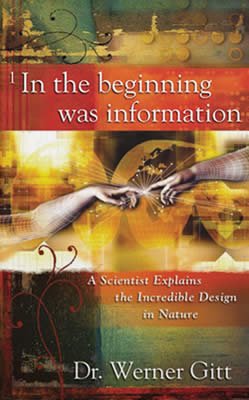
Chapter 13
The Quality and Usefulness of Biblical Information
According to biblical assertions all information given out by humans is evaluated by God.
The semantic value of information versus usability is graphed in Figure 25, resulting in four different areas (quadrants). According to biblical assertions all information given out by humans is evaluated by God.
Useless information: We have subdivided useless information into two parts, namely indifferent and injurious information, and we find a permanent criterion in God’s commandments: “You shall not give false testimony against your neighbor” (Exodus 20:16), because “The LORD detests lying lips” (Proverbs 12:22). Such people are described in Jeremiah 8:6: “I have listened attentively, but they do not say what is right. No one repents of his wickedness, saying, ‘What have I done?’ Each pursues his own course like a horse charging into battle.” The tongue is a small part of the body, but it can have enormous effects: “Consider what a great forest is set on fire by a small spark. The tongue also is a fire . . .” (James 3:5–6). These quotations are restricted to cases where we, as senders, transmit injurious information. God also wants to protect us from being recipients of such information, and He warns us emphatically against association with such senders:
Proverbs 1:10: “My son, if sinners entice you, do not give in to them.”
Proverbs 14:7: “Stay away from a foolish man, for you will not find knowledge on his lips.”
Psalm 1:1: “Blessed is the man who does not walk in the counsel of the wicked or stand in the way of sinners or sit in the seat of mockers.”
In this connection, we want to point out that Adam and Eve’s sin was introduced by the evil information: “Did God really say . . . ?” (Gen. 3:1). The response of the first people to this information which threw doubt upon God’s word, had inconceivable consequences. It resulted in death and suffering, pain and illness, war and wailing, and all of us are still suffering from the disastrous effects of sin. Man can both send and receive injurious information (lies, provocation, slander, mockery, and cursing) by listening and responding to it. God detests both, and every evil word is recorded in God’s information registers. These books will be opened one day (Revelation 20:12) and we will be judged accordingly, as Jesus prophesied: “But I tell you that men will have to give account on the day of judgment for every careless word they have spoken. For by your words you will be acquitted, and by your words you will be condemned” (Matt. 12:36–37).
Valuable information: The most valuable information that has ever been sent is the Word of God. No other message is better and no other words ever brought more joy. There is no useless or false information in the Bible, since God’s Word is absolutely true: “God is not a man, that he should lie, nor a son of man, that he should change his mind. Does he speak and then not act? Does he promise and not fulfil?” (Numbers 23:19). The Bible contains certainty and truth, as well as eternal and divine words. No other information can even approach being equal to this. The Psalmist testifies from his personal experience when he cries out, “I rejoice in your promise like one who finds great spoil” (Psalm 119:162). Paul also refers to the treasure he has found: “But we have this treasure in jars of clay” (2 Corinthians 4:7). God wants us always to be receivers and transmitters of this information which He values exceedingly.
1. As recipient: Many people follow various courses and take pains for the purpose of being successful in their private lives and in their careers. Already in the Old Testament God has given simple advice which can easily be followed and can have great effects: “Do not let this Book of the Law depart from your mouth; meditate on it day and night, so that you may be careful to do everything written in it. Then you will be prosperous and successful” (Joshua 1:8). Contemplation of and obedience to the Word of the living God is extremely important: “Obey me, and I will be your God and you will be my people. Walk in all the ways I command you, that it may go well with you” (Jeremiah 7:23).
The Word brings understanding and wisdom and it keeps us from going astray (Psalm 119:104). It renews (Ps. 119:154), enlightens, and brings joy (Psalm 119:130) and shows us the way of salvation (James 1:21). Since we are dealing with the most valuable information—extremely important information, Figure 25—we are unambiguously instructed to “Let the word of Christ dwell in you richly” (Colossians 3:16). According to Helmut Matthies, director of information services of the Evangelical Alliance of Germany, the average German works 38.5 hours per week and watches television for 17.5 hours per week [M1]. The latter figure is increasing, and the watchers are exposed to an inconceivable amount of influencing, but they neglect the one necessary influence. God’s will is that we should let ourselves be impregnated with His eternal message.
2. As sender: In our role as senders we will only pass on information which has impressed us. Jesus expresses this general situation in the words: “For out of the overflow of the heart the mouth speaks” (Matthew 12:34). The Psalmist always concerned himself with the Word, so that he could and would draw from this supply: ““May my tongue sing of your word” (Ps. 119:172). Christians should be recognized from the well they drink. This does not mean that no negative information should proceed from them, but that they should be bearers of good news. God’s evaluation is obvious from Isaiah 52:7: “How beautiful . . . are the feet of those who bring good news, who proclaim peace, who bring good tidings, who proclaim salvation.”
This good news is the gospel of Jesus Christ, which saves everyone who believes and accepts it. Jesus often emphasized that we should be senders of this message (Matthew 28:19–20; Mark 16:15; Luke 10:3; 12:8–9). When the Samaritan woman met Jesus at Jacob’s well and recognized Him as the Christ, she put her jar down and immediately went back to the town to proclaim the message of salvation (John 4:25–30). Paul also tried any possible way of winning over different people of all backgrounds (1 Corinthians 9:19–22), and he even tells himself, “Woe to me if I do not preach the gospel!” (1 Corinthians 9:16). He combines assignment and contents in the following words: “We implore you on Christ’s behalf: Be reconciled to God” (2 Corinthians 5:20). This message is not only the most important and the most urgent, it is also the most certain message. The well-known evangelist C.H. Spurgeon (1834–1892) calls out [S9]: “If you don’t have an eternal gospel to proclaim, then your message is only worth 20 pennies. You can get uncertainties elsewhere and everywhere, but matters of eternal life are only found in the Bible.”
In the Beginning Was Information
Between the covers of this book may well be the most devastating scientific argument against the idea that life could form by natural processes.
Read OnlineRecommended Resources

Answers in Genesis is an apologetics ministry, dedicated to helping Christians defend their faith and proclaim the good news of Jesus Christ.
- Customer Service 800.778.3390
- © 2025 Answers in Genesis



